last updated: September 5
Keynote 1 Sep. 6 (Tue) 10:20-11:10
Professor Dr. Dimitris Karagiannis, University of Vienna
Dr. Martin Petry, CIO, Hilti
Title: Industrial Product-Service Systems Engineering
Abstract:
The evolution of the internet to a generic platform and a fully pervasive environment enables an efficient engineering, provision and consumption of digital services. Cloud based deployment models enable service functionalities for a world-wide availability: Services are accessible at any time, independent of location and potential processing limitations of the device used; establishing the basis for novel business models in defining services and related business models.
Based on this observation, two views on Industrial Product-Service Systems Engineering are presented: from an academic perspective, we investigate how the characteristics of digital service engineering can be mapped on product-service systems focusing on hybrid business models as a means to establish smart products. Smart products are defined as tangible offerings of an enterprise that have been adapted and modified in a way, that service-based business models become operationally feasible and sustainably embedded in their lifecycle. The following challenges have been identified to exemplify current research directions and approaches:
- Servicification Engineering: How can we identify the servicification degree of a product? What are the requirements on product level to bridge the product-service alignment gap?
- Product-Service-Lifecycle: How can an integrated lifecycle for the product-service system consisting of design, operation and evaluation phases be operationalized?
- Knowledge Engineering and Service Modelling: What role do knowledge engineering and modelling play in such realization scenarios?
The industrial perspective on Industrial Product-Service Systems Engineering is provided by Hilti. Hilti, the leading solution provider for construction and engineering products and services is active in 120 countries world-wide and has been established in 1941 as a company focusing on mechanical engineering/machinery construction. The enterprise follows an innovative approach in enabling product-service systems based on innovative products and solutions that enable service interaction, dynamic product/service operation and direct customer relationships as a continuous feedback loop to previous phases.
Keynote Presenters' Biographies
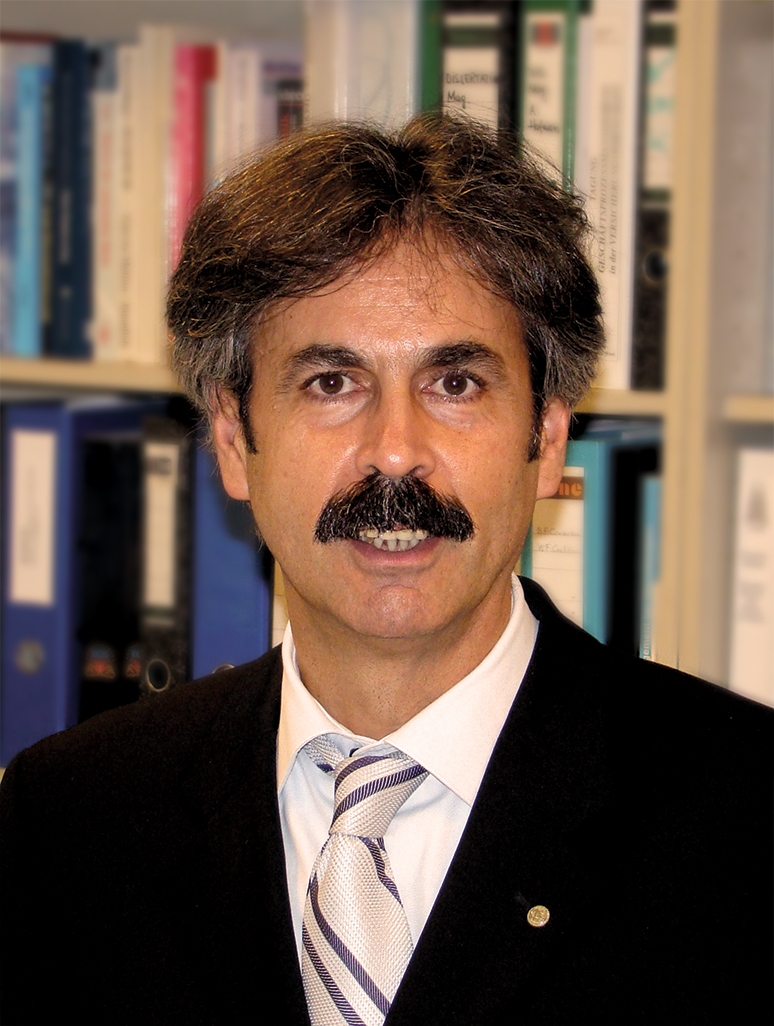 |
Dimitris Karagiannis
University of Vienna Faculty of Computer Science Research Group Knowledge dimitris.karagiannis@univie.ac.at Tel. +43 1 4277 78910 www.dke.at Short Biography
Dimitris Karagiannis read at the Technical University of Berlin, where he graduated with a PhD in Computer Science. He was a visiting scientist at research institutions in the US and Japan. From 1987 to 1992 he headed the Business Information Systems group at the Research Institute for Applied Management (FAW) in Ulm as a scientific director. |
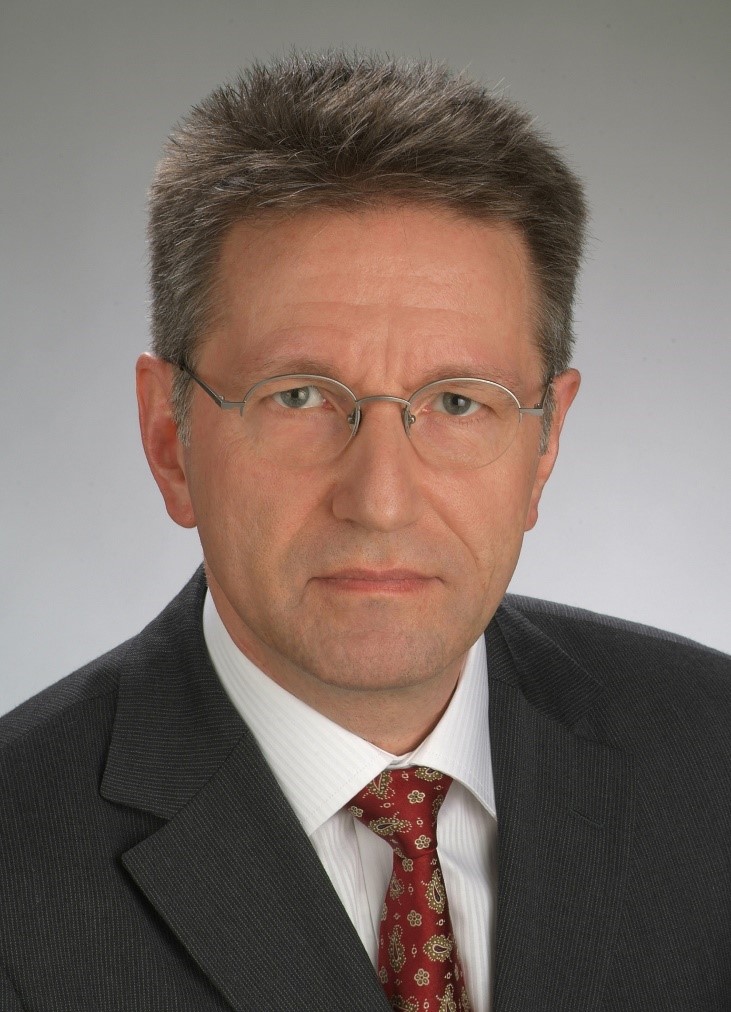 |
Martin Petry became Hilti’s CIO in 2005. He is responsible for Hilti’s 400 IT employees based in Switzerland (Buchs SG), US (Tulsa, Oklahoma and Plano, Texas) and Malaysia (Kuala Lumpur). Since 2009 he is also in charge of Hilti’s Business Excellence initiatives and EVP. Martin came to Hilti in 1993 and has held various leadership roles in Liechtenstein, Switzerland, Great Britain and Japan. He has developed Hilti’s ground-breaking IT Strategy in 2000 and has lead its implementation, in particular Hilti’s global SAP implementation cum business transformation project (standard global data structures and business processes supported by a global SAP system with ERP, BI, CRM and SCM which is now being used by 20,000 Hilti employees in more than 50 countries). Recently Martin has initiated various cloud computing / SaaS initiatives at Hilti and he has lead the development of the comprehensive Information Technology at Hilti strategy which is now the foundation of all digital and software initiatives in the Hilti group. Martin earned his PhD in applied mathematics from Georg-August University in Goettingen, Germany. |
Keynote 2: Talk Fujitsu Special Session Sep. 6 (Tue) 11:10-12:10
Yoshikuni Takashige, Vice President, Head of Marketing Strategy, Fujitsu Limited
Yoshinori Fujikawa, Ph.D., Associate Professor & Faculty in Charge of MBA Program, Graduate School of International Corporate Strategy, Hitotsubashi University
Title: Human Centric Innovation and Digital Future
Abstract:
Digital technology is advancing rapidly, changing businesses, society and our everyday lives. This is digital transformation. It is expected that 50 billion or more things will be connected by 2020. The Internet of Things, Artificial Intelligence and Robotics will give a significant impact to all industries. Business leaders are already aware of the potential of digital, because it will give tremendous opportunities of growth as well as enormous challenges. Digital may disrupt their existing businesses, unless they take any effective actions now. In this revolutionary time, what must they do?
In this key note, Yoshikuni Takashige of Fujitsu will talk about on how businesses will be able to approach to digital, using real examples. The key is to put people in the center, providing human centric services. This is realized by empowering people with digital information and digitalized things. Fujitsu calls this Human Centric Innovation. He will also elaborate on steps toward shaping ecosystems, which are critical for creating value in the digital era. For this, it will be essential to leverage a new type of digital business platform.
Yoshinori Fujikawa of Hitotsubashi University will join Yoshikuni Takashige to discuss the importance of a multi-sided platform and what actions businesses should consider to enable this. They will also discuss the impact of Artificial Intelligence and how people can shape a different future.
Keynote Presenters' Biographies
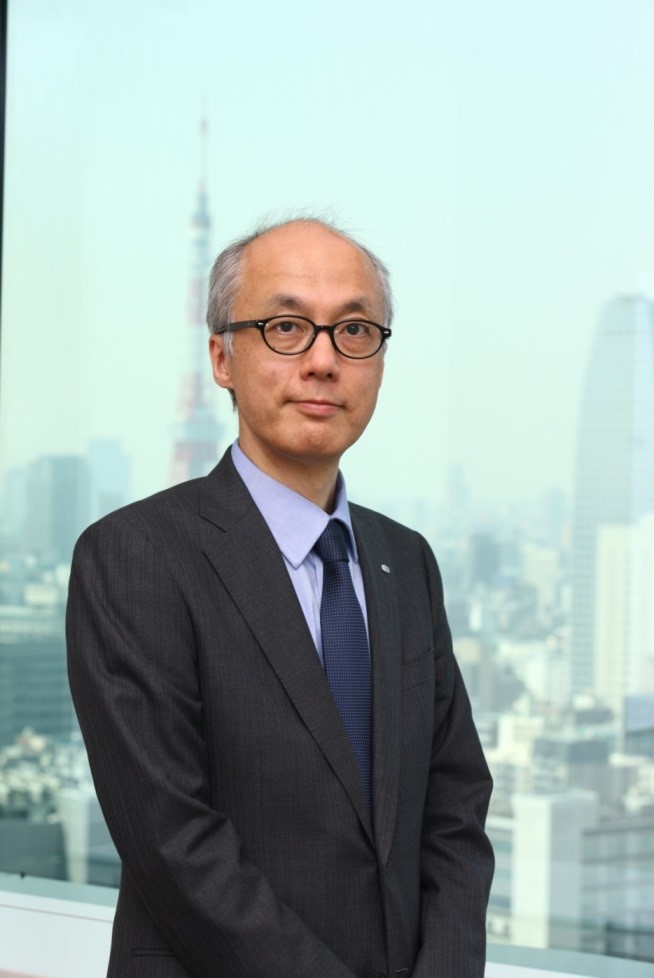 |
Yoshikuni Takashige
Vice President Head of Marketing Strategy Fujitsu Limited Short Biography
Yoshikuni Takashige joined Fujitsu in 1984. He was engaged in developing international business. From 1996 to 1998, he was based in Singapore, working as an investment officer for Asian Infrastructure Development Corporation (AIDEC), a large-scale infrastructure fund established by JBIC, Asian Development Bank and other financial institutions and private enterprises including Fujitsu. |
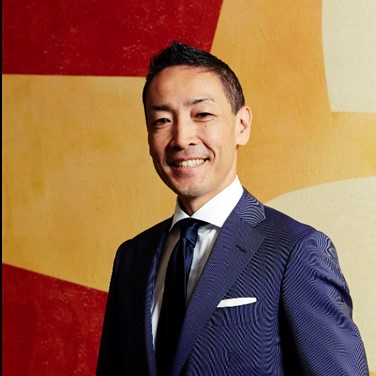 |
Yoshinori Fujikawa, Ph.D.
Associate Professor & Faculty in Charge of MBA Program Graduate School of International Corporate Strategy Hitotsubashi University Short Biography Yoshi Fujikawa is an Associate Professor & Faculty in Charge of MBA Program at Graduate School of International Corporate Strategy (ICS), Hitotsubashi University, Tokyo, Japan (From April 1, 2007). Prior to joining ICS, Yoshi was a Lecturer and Research Assistant at Pennsylvania State University (University Park, PA). He also worked as a Research Associate at the Mind of Market Laboratory and the Division of Research, both at Harvard Business School (Boston, MA). His business experience includes marketing research and strategic consulting work with Olson Zaltman Associates, the inventor of the patented research method ZMET (Zaltman Metaphor Elicitation Technique).His research focus lies in the following three areas: (1) field-based research on service management issues, with particular emphasis on contemporary issues such as service innovation, service globalization, and service opportunities for manufacturing firms; (2) development, promotion, and application of non-traditional marketing research methods for eliciting customers’ tacit knowledge; and (3) social psychological approach to investigate the role of cognition and emotion in firm-customer relationship formations. His research results have appeared as journal articles, conference proceedings, and book chapters in both English and Japanese. He is also an author and co-author of Hitotsubashi ICS and Harvard Business School cases, which are used in marketing and service management courses at major business schools around the world. Yoshi received Ph.D. in Marketing from Pennsylvania State University, M.B.A. from Harvard Business School, and M.A. in Commerce and B.A. in Economics from Hitotsubashi University |
Keynote 3 Sep. 7 (Wed) 11:30-12:20
Associate Professor Alexander Josiassen, Copenhagen Business School
Title: A Formalized Framework of Consumer’s Mental Pictures – with implications for brands, companies, countries, and destinations
Abstract:
The image concept is widely used in marketing, tourism management and other fields. This speech will look at what image actually means and some of the conceptual pit-falls. Although references will be drawn to other literatures, the main context will be that of the destination image within tourism research. The starting point will be from the extant literature, trying to learn what we know and what we do not know, and where we go from here.
In the talk, I will also discuss the future and potential of researching on destination image, and where it stands vis-à-vis some of the other key research areas in tourism research.
Keynote Presenters' Biographies
 |
Associate Professor Alexander Josiassen Associate Professor of Marketing, and Center Director of the Center for Service Management, Department of Marketing, Copenhagen Business School; Visiting Professor at RMIT University, School of Economics, Finance and Marketing Alexander Josiassen is Associate Professor and Director at the Center for Service Management, Copenhagen Business School, Denmark. His PhD is from Melbourne University in Australia. His research focuses on consumer behavior and firm strategy. He has published on these topics mostly in the areas marketing and tourism management and in journals such as the Journal of Marketing, Journal of Retailing, Tourism Management, and Annals of Tourism Research. He was recently awarded Tietgen’s Gold Medal, which is awarded to the most promising emerging scholar in the social sciences in Denmark, and Charles R. Goeldner’s Award of Excellence which is the most prestigious international award in tourism research. Alexander is currently working with an international network of excellent researcher on projects in marketing, management, tourism, and social psychology. He is the Director of the Center for Tourism and Service Management which hosts the Master in Service Management, Copenhagen Business School; a program that was recently ranked by Eduniversal as one of the World’s Top 3 programs in service management. He regularly consults companies on the topics of consumer behavior and firm strategy. |
Keynote 4 Sep. 8 (Thu) 13:40-14:30
Junichi Tsujii
Director, Artificial Intelligence Research Centre of AIST, Japan
Professor, School of Computer Science, University of Manchester, UK
Title: Artificial Intelligence for Serviceology
Abstract:
The AIRC is a research centre, established in May, 2015 with aid from the Japanese Ministry of Economy, Trade and Industry (METI), whose objective is to become the leading group carrying out translational research of AI in Japan. It comprises 250 staff, including 75 full-time researchers and 50 part-time visiting researchers.
The AIRC carries out research into a broad range of topics, such as machine learning, big data analytics, multi-agent simulation, robotics, innovative retailing, AI for Biomedical sciences and AI for elderly care. AI is now the core of convergence of diverse scientific and technological fields, such as Robotics, Biomedical sciences, internet of things (IoT) and factory automation, etc. One of the major application domains of AI is in the service industry. AI is a key technology for providing personalized services. Starting with recommendation systems and personalized advertisements, AI is now being used in personalized medicine, care robots, innovative retailing, etc. Integration of social data of various sorts, AI can be used to provide more fine-grained context dependent services. In this talk, I will introduce examples of research at the AIRC and discuss possible application of AI in services.
Keynote Presenters' Biographies
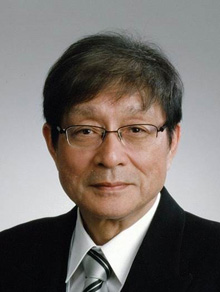 |
Junichi Tsujii Director, Artificial Intelligence Research Centre of AIST, Japan Professor, School of Computer Science, University of Manchester, UK Professor Tsujii was appointed Principal Researcher at Microsoft Research Asia (MSRA) (05.2011-04.2015), Professor of Natural Language Processing in the Department of Computer Science, University of Tokyo (07.1995-04.2011) and Professor of Text Mining in School of Computer Science, University of Manchester (06.2005-04.2011), before taking up the directorship of the Artificial Intelligence Research Centre (AIRC) at the National Institute of Advanced Industrial Science and Technology (AIST) (05.2015). He has recently been appointed as a part-time Professor of School of Computer Science, University of Manchester. Professor Tsujii has worked in the areas of natural language processing (NLP), question answering, text mining and machine translation. Recently, his main focus has been on linguistics-based parsing, information extraction and NLP-based text mining technology, which he has applied to literature mining in the biomedical domain. He was the president of the Association for Computational Linguistics (ACL) in 2006, and is now the chairman of ICCL (International Committee of Computational Linguistics). He is also Fellow of the ACL and a Fellow of the Information Processing Society of Japan (IPSJ). |
Keynote 5: Hitachi Special Session Sep. 8 (Thu) 14:30-15:30
Chiaki Hirai, Hitachi, Ltd. Global Center for Social Innovation – Tokyo
Title: Simulating service value
Abstract:
Hitachi has been developing service simulators in various fields of social infrastructure such as energy management, logistics, healthcare, and railways. We call this series of service simulators “NEXPERIENCE/Cyber-Proof of Concept (Cyber-PoC)” because they are used to test new service concepts in cyber space.
Cyber-PoC is definitely an engineering tool; it inputs service models, simulates them, and shows what is going to happen under given conditions. However, it is not a simulator just for system engineers. Its distinctive objective is to visualize service ideas and to present their business impacts to the executives of service providers. The executives are not necessarily experts on state-of-art technologies to improve their services such as IoT, optimization algorithms, or deep learning. Often, they do not care all that much about the technologies. Still, they have to understand the essence of the service ideas, estimate their business meaning, and decide whether or not to invest in the ideas.
Cyber-PoC aims to help business executives understand new service ideas. For this purpose, the simulators are developed under consistent policies on functions, GUI design, and the way of presentation.
This session will demonstrate some Cyber-PoC simulators, showing how they have been developed, how they are being used, and how they have been accepted by business people. What we have learned from our experience is that a simulator is an effective tool to tell a story about your service business.
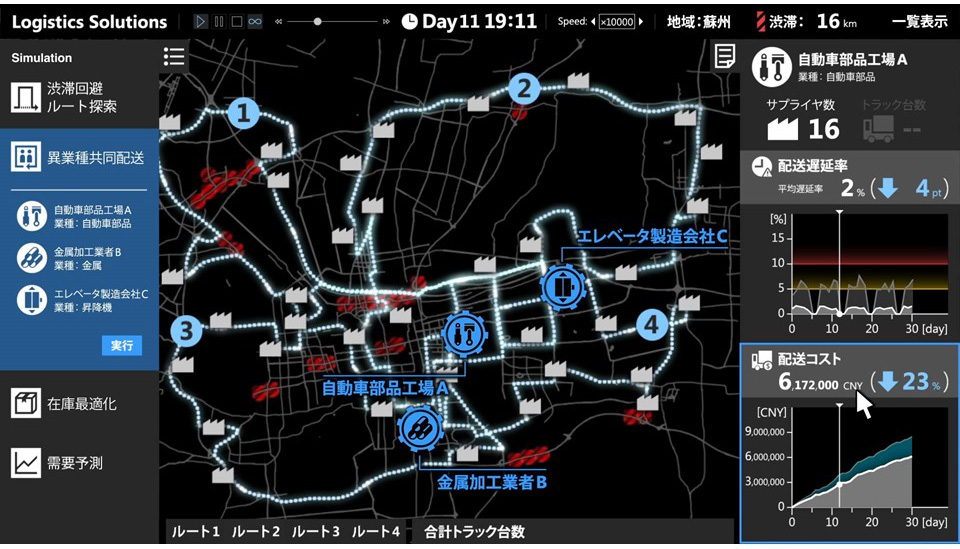
Keynote Presenters' Biographies
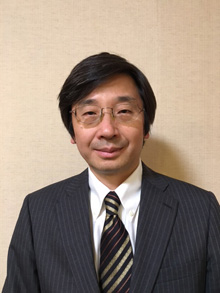 |
Chiaki Hirai, Ph.D. Chief Researcher in Hitachi, Ltd. Global Center for Social Innovation - Tokyo Chiaki Hirai graduated from The University of Tokyo and joined Hitachi's research and development department in 1987. The research areas are generally on methodologies to design and evaluate systems in various levels, such as business, service, and software systems. He has obtained Dr. of Knowledge Management from Japan Advanced Institute of Science and Technology. |
Special Session
The topic of this session is how to design, develop and implement meaningful technologies for seniors in their daily lives and care service environments. Our society is facing the challenges of aging population. While technologies such as ICT and robotics are being highly anticipated to tackle these challenges, there seems still some gap between such expectation and actual products or their usage. To realize meaningful technologies for seniors, it is important to review the daily lives of seniors at home or care facilities from the service system perspective which consists of stakeholders such as families, caregivers and municipalities, and then to specify the role and position of technologies in the service system. The active participation of these stakeholders in designing technologies and their usage is also needed to develop and implement them in care service systems. We welcome both theoretical and empirical papers concerning this topic.
More special sessions to be added.
